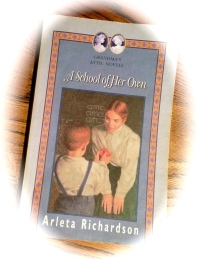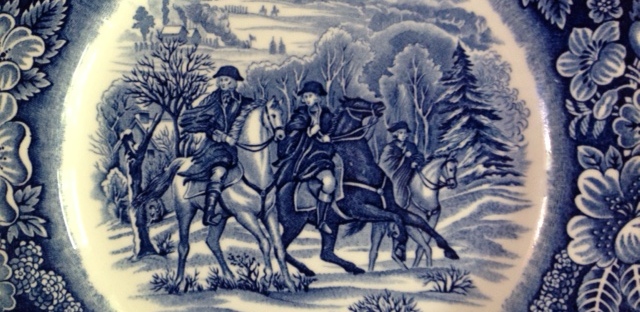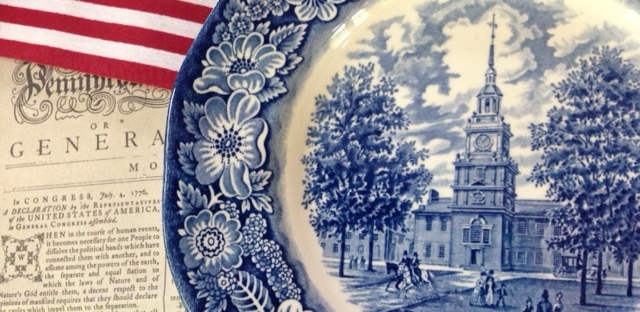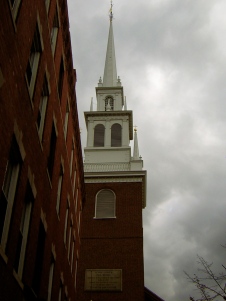I’ve thought that if I had lived during the era of the War for Independence and could have picked my husband’s profession, I’d choose printing. Laying out rows of type (backwards so that the text would appear left-to-right on the printed page) seems fascinating, and I’d like to think that I wouldn’t mind at all if Mr. Printer’s hands and apron were all ink-stained. What would that matter compared to the joy of promulgated news, knowledge and noteworthy notions? Besides, I figured I would be able to manage the print shop nicely (all right, with some help) if my hero joined the ranks of the American militia. After all, we would surely strive to practice what we printed!
Yes, if my last name were Gutenberg itself I’d be rather thrilled (though I admit to true partiality to my real last name as is…It’s rather a handy title, you see.) But why Gutenberg, you ask? Ah, well, it was back in the 1400s that Johannes Gutenberg invented the first movable type printing press. This invention made possible faster and economical printing of all kinds, especially books.
Thanks to movable type, phrases like these haven been printed and distributed around the world:
“Humility makes great men twice honorable.” ~Benjamin Franklin, Poor Richard’s Almanac
“If I can stop one Heart from breaking, I shall not live in vain…” ~Emily Dickinson
“It was the best of times; it was the worst of times.” ~Charles Dickens
“Elementary, my dear Watson.” Sherlock Holmes, via Sir Arthur Conan Doyle
The writers behind these words wrote them for various reasons, I’m sure, but, I think, they all understood that what someone reads affects him. Whether their goal was to instruct, encourage, inspire, or amuse, they counted on the power of the printed word. If what people read only goes in their eyes and out the back of their heads and doesn’t change how they live at all – even for moments – I think most writers would scurry off to a different profession. The world certainly knows that writers don’t write for the money involved!
Yes, words have power. Yet books fall apart, ink fades and paper decays. Words really cannot live on their own. They are like marionettes, sitting motionless unless someone gives them action.
There is, however, one Living Word. It is of this Word that a German – who demonstrated that he believed in the power of words by nailing a parchment to a chapel door in Wittenberg on this day 498 years ago – wrote the following lines.
Did we in our own strength confide, our striving would be losing;
Were not the right Man on our side, the Man of God’s own choosing:
Dost ask who that may be? Christ Jesus, it is He;
Lord Sabaoth, His Name, from age to age the same,
And He must win the battle.
And though this world, with devils filled, should threaten to undo us,
We will not fear, for God hath willed His truth to triumph through us:
The Prince of Darkness grim, we tremble not for him;
His rage we can endure, for lo, his doom is sure,
One little word shall fell him.
That word above all earthly powers, no thanks to them, abideth;
The Spirit and the gifts are ours through Him Who with us sideth:
Let goods and kindred go, this mortal life also;
The body they may kill: God’s truth abideth still,
His kingdom is forever.
~”A Mighty Fortress Is Our God”, Martin Luther
And it is of this Word that it was written first by hand and then printed for all the world to read:
“And the Word became flesh and dwelt among us, and we have seen his glory, glory as of the only Son from the Father, full of grace and truth. ~John 1:14, ESV
Now that’s a Living Word.
And what became of Martin Luther’s words nailed to the Wittenberg Chapel on October 31, 1517? Those Ninety-Five Theses sparked a movement that took Europe by storm and, arguably, changed the course of history: the Reformation. Whatever your view of that event, it does show that words (especially when they are brought to life by actions) have power. Let’s remember that on this Reformation Day.










 etails and vibrant expressions to Mrs. Coney, a friend back in Denver. Thanks to her friend, Elinore’s letters were published in the Atlantic Monthly and later in a book illustrated by N.C. Wyeth. Her story lives on through print editions and an audiobook called
etails and vibrant expressions to Mrs. Coney, a friend back in Denver. Thanks to her friend, Elinore’s letters were published in the Atlantic Monthly and later in a book illustrated by N.C. Wyeth. Her story lives on through print editions and an audiobook called 



